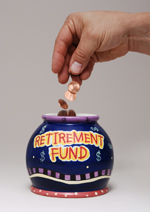When hearing the word retirement you may think of sandy beaches and hours upon hours of free time. The reality is though, without a decent amount of preparation and organization, retirement is anything but a trip to the beach.
Start now.
Ask any financial guru and they will all tell you the same thing – start saving now. No matter your age, it is never too early to begin planning for retirement. The earlier you save, the longer your money has to grow. Each year’s saving will build upon the prior year’s saving, and slowly but surely you will accumulate wealth. If you don’t have much cash to spare, consider easy ways to cut back on spending and put what money you don’t spend toward retirement.
Take advantage of help.
Some companies have great retirement incentives, like 401 (k) plans. This particular type of plan is typically a salary reduction deferral, which regularly contributes a specified amount of an employee’s paycheck to their 401(k). This plan is designed specifically for retirement savings and can be a great way to help you start saving early. Although you may think receiving your full salary is more beneficial than filling your 401(k), remember the money you aren’t receiving today will be there when you retire.
Set goals.
The worst retirement plan is no retirement plan at all. Knowing this, set realistic goals about the type of lifestyle you want to have after you retire. Consider every expense you may encounter, including living, travel, and food. According to the Department of Labor, “almost 20 percent of retiree income will be spent on health care,” so be sure to save for emergencies as well as luxuries in your later life.
Although retirement may seem like a distant journey, it is never too late to start preparing for it. Remember, the sooner you begin saving, the longer your money will have to accumulate and the better you will be able to enjoy your new post-career life.

